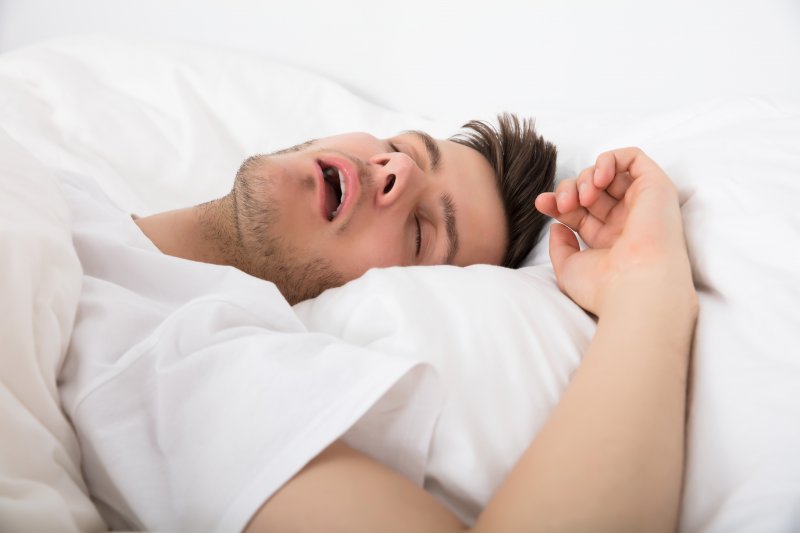
As annoying as it can be for people trying to sleep nearby, snoring is not always thought of as a serious problem. In fact, it’s common for movies and television shows to use snoring as a joke. But if you’ve been told that you snore frequently, you should never just brush it off. In fact, depending on the circumstances, you may need to get in touch with a sleep doctor as soon as possible to see if you might be suffering from a disorder such as sleep apnea! Here’s why those noises you make at night can be more serious than they appear.
How Can Snoring Be a Sign of Sleep Apnea?
Snoring occurs when air is unable to flow freely through the back of the throat. While roughly half of all adults snore from time to time, habitual snoring could potentially be linked to obstructive sleep apnea, which is when throat tissues block the airway to the point where you can actually stop breathing. (That is where the name comes from; “apnea” is defined as a cessation of breath.) People who have severe sleep apnea stop breathing at least 30 times a night for 10 seconds at a time; however, it’s possible to suffer from 500 sleep apnea episodes while sleeping, with each one lasting for up to 90 seconds. You’ll awaken very briefly during these episodes, although you probably won’t remember doing so later.
Why is Sleep Apnea Dangerous?
It goes without saying that having your breathing interrupted on a recurring basis is not good for your body. The drop in oxygen can put a strain on your heart, which is especially dangerous for people who already have cardiovascular disease or high blood pressure. There’s also the impact that it can have on your quality rest. Not only will you feel extremely tired during the day, but you’ll be far less alert, which could easily lead to accidents at work or on the road. Most people with sleep apnea go undiagnosed until they’ve already suffered severe consequences, which is why it’s so important to recognize the possibility of the disorder.
Is Snoring Always a Sign of Sleep Apnea?
It should be noted that there is a difference between regular snoring and snoring associated with sleep apnea. Generally speaking, if your snoring is unusually loud, or if it is accompanied by pauses in your breathing, it should be considered a warning sign for a sleep disorder.
If you’re not sure whether or not your snoring is a sign of something more serious, get in touch with a sleep dentist as soon as you can. If there is something wrong with your breathing at night, having it checked out and treated as soon as possible could be a decision that saves you many, many restless nights.
About the Author
Dr. Mitch Conditt was personally diagnosed with sleep apnea in 2009. After finding lasting relief with oral appliance therapy, he decided to use his dental experience to help patients suffering from similar sleep disorders. Today, he is a diplomate of the American Board of Craniofacial Dental Sleep Medicine. If you’re afraid that your snoring might mean you have sleep apnea, get in touch with him at Fort Worth Snoring & Sleep Center through his website or by calling (817) 527-8500.
